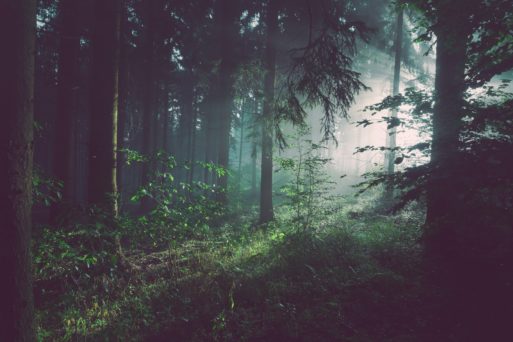
“When Great Trees Fall,” a poem by Maya Angelou about the enormity of death.
Credit: Sebastian Unrau via Unsplash
When great trees fall,
rocks on distant hills shudder,
lions hunker down
in tall grasses,
and even elephants
lumber after safety.When great trees fall
in forests,
small things recoil into silence,
their senses
eroded beyond fear.
There is an enormity to death, especially that of a loved one, that we humans can’t exactly comprehend. Maya Angelou illustrates that magnitude beautifully in this poem entitled “When Great Trees Fall.”
She introduces the theme by describing a few salient details in nature.“When great trees fall,” it affects everything around them; it causes gigantic parts of nature to move and small and large members of the animal kingdom to react.
When great souls die,
the air around us becomes
light, rare, sterile.
We breathe, briefly.
Our eyes, briefly,
see with
a hurtful clarity.
Our memory, suddenly sharpened,
examines,
gnaws on kind words
unsaid,
promised walks
never taken.
The aforementioned natural imagery sets the stage and then creates a beautiful parallel for what people do in the aftermath of a human death, noting the emptiness of “the air becom[ing] light, rare, sterile” and the wounds of “ kind words/unsaid,” and “promised walks/never taken.”
Great souls die and
our reality, bound to
them, takes leave of us.
Our souls,
dependent upon their
nurture,
now shrink, wizened.
Our minds, formed
and informed by their
radiance,
fall away.
We are not so much maddened
as reduced to the unutterable ignorance
of dark, cold
caves.And when great souls die,
after a period peace blooms,
slowly and always
irregularly. Spaces fill
with a kind of
soothing electric vibration.
Our senses, restored, never
to be the same, whisper to us.
They existed. They existed.
We can be. Be and be
better. For they existed.
The poet resurrects the enormity theme by showing how we remaining mortals “now shrink/wizened.” We don’t know what to do with ourselves, so “[we’re] reduced to the inutterable ignorance/of dark cold/caves.” In these lines, she captures how we retreat into solitary spaces, challenged by our grief.

A “dark, cold cave” as mentioned in Maya Angelou’s poem “When Great Trees Fall.”
Credit: Noah Silliman via Unsplash
Further exploring this existentialism, Angelou gives many different emotionally-charged words in the final stanza. There is optimistic imagery, such as “a period peace blooms” and “soothing electric vibration,” but there’s also some pessimistic, “slowly and always/irregularly” and how “Our senses” are “never/to be the same.”
Like life itself, this blending is bittersweet. The resolve is that “They existed” and “We can be/Be and be/better. For they existed.” The repetition of these phrases emphasizes the emotional impact of death upon the living.

 “When Great Trees Fall” by Maya Angelou
“When Great Trees Fall” by Maya Angelou


 How Dare You Die Now!
How Dare You Die Now!
 Debating Medical Aid in Dying
Debating Medical Aid in Dying
 “Help Me, Helen”
“Help Me, Helen”














